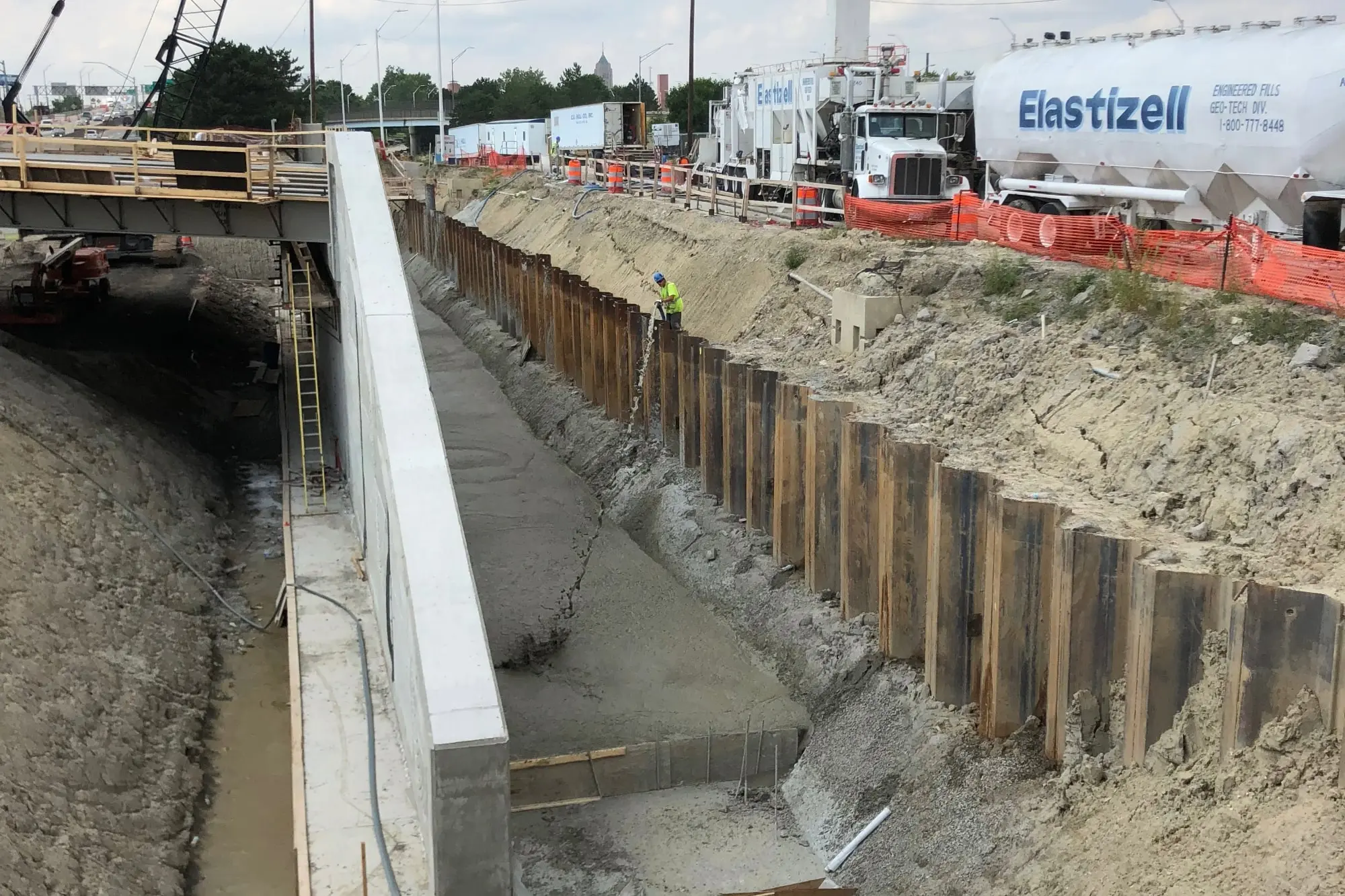
Retaining Walls with Lightweight Cellular Concrete by Elastizell Systems
Retaining walls are essential structures in both residential and commercial construction, designed to restrict the movement of soil behind them and prevent erosion. When planning a retaining wall, many variables must be considered, including soil quality, foundation stability, and the overall load on the structure. Utilizing Lightweight Cellular Concrete (LCC) in retaining walls offers a range of benefits, ensuring long-lasting performance and cost-effectiveness.
At Elastizell Systems Inc., we specialize in delivering innovative retaining wall solutions using LCC, dramatically increasing the resilience of your retaining walls while reducing construction costs.
The Importance of a Strong Foundation
A successful retaining wall design hinges on a strong foundation. Poor soil quality can lead to issues such as inadequate water drainage, low bearing capacity, freeze/thaw damage, and potential settlement of the wall foundation. By incorporating Elastizell Lightweight Cellular Concrete (LCC), you can address these challenges effectively, creating a more resilient and stable structure.
Advantages of Using Lightweight Cellular Concrete for Retaining Walls
Lightweight Cellular Concrete (LCC) offers numerous advantages over conventional backfill materials when used in retaining walls:
- Reduced Vertical and Lateral Loads: LCC helps reduce the potential for wall foundation settlement by minimizing the vertical and lateral loads acting on the retaining wall. This leads to a more stable and durable structure.
- Load-Balancing Base: LCC creates a load-balancing base for supporting the retaining wall and footing structure, enhancing the overall stability of the wall.
- Internal Cohesion and Minimal Lateral Force: The internal cohesion of LCC means that there is no active earth pressure, resulting in little to no lateral force on the retaining wall.
- Minimized Settlement: The use of LCC minimizes settlement, preventing the common issues that can arise with traditional backfill materials.
- Water Resistance: LCC does not absorb water, reducing the risk of water-related damage such as erosion or freeze/thaw cycles.
- Accelerated Installation and Improved Uniformity: LCC allows for quicker installation with improved fill uniformity. There’s no need for compaction or compaction testing, which speeds up the construction process and reduces labor costs.
- Cost Reduction: Using LCC can significantly reduce the cost of the retaining wall structure by circumventing the need for conventional ground improvement or deep foundation techniques. The reduced magnitude of driving forces also lowers the overall construction cost.
- Durability in Extreme Conditions: LCC offers excellent freeze/thaw resistance, ensuring that the retaining wall remains stable and intact even in harsh climates. Additionally, unlike synthetic lightweight fills, LCC is not susceptible to failure due to hydrocarbons, providing long-term reliability.
- Versatility in Wall Types: LCC can be used with various retaining wall types, including Segmental Retaining Walls, MSE (Mechanically Stabilized Earth) Walls, Gravity Walls, Cantilevered Walls, and Counterfort Walls.
- Reduced Construction Traffic: Elastizell Systems' ability to expertly mix LCC on-site requires only bulk deliveries, reducing truck traffic by up to 90 percent, which is particularly beneficial for projects in congested or sensitive areas.
Applications of Lightweight Cellular Concrete in Retaining Walls
The versatility of Lightweight Cellular Concrete (LCC) makes it an ideal choice for a variety of retaining wall applications, including:
Residential Landscaping
LCC is perfect for creating garden walls, terraces, and other landscape features that require retaining walls. Its lightweight nature makes it easier to work with in residential settings, and its durability ensures a long-lasting solution.
Roadway and Highway Embankments
Retaining walls along roadways and highways benefit from the reduced load and increased stability provided by LCC, helping to prevent soil erosion and landslides that could otherwise compromise the integrity of the road.
Commercial and Industrial Sites
In larger construction projects, such as commercial developments or industrial facilities, LCC offers a reliable and cost-effective material for constructing retaining walls that support large volumes of soil and withstand heavy loads.
Flood Control and Water Management
Retaining walls in flood-prone areas or along riverbanks can be reinforced with LCC to provide better resistance to water pressure and reduce the risk of wall failure during heavy rainfall or flooding.
Why Choose Elastizell Systems for Your Retaining Wall Projects?
With over 65 years of experience, Elastizell Systems Inc. is a leader in the application of Lightweight Cellular Concrete for retaining walls and other construction projects. Our team of skilled engineers and construction experts is dedicated to delivering high-quality, reliable solutions that meet the specific needs of your project.
Contact Elastizell Systems today to learn more about how Lightweight Cellular Concrete can enhance the performance and longevity of your retaining walls. Let us provide the innovative solutions you need to ensure the stability and success of your construction projects.
Contact Us to get started with the industry leader in Lightweight Cellular Concrete solutions.
Expertise You Can Trust
Over 65 years in business with a proven track record in retaining wall solutions.
Tailored Solutions
Custom LCC mixes to reduce load and enhance stability in retaining walls.
Engineering Excellence
Skilled engineers ensure optimal performance and precision.
Seamless Project Management
Complete project management from start to finish, on time and within budget.
Durable Products
High-quality LCC for long-lasting, reliable retaining wall construction.
Versatile Applications
Perfect for various retaining wall needs, including structural support and erosion control.
